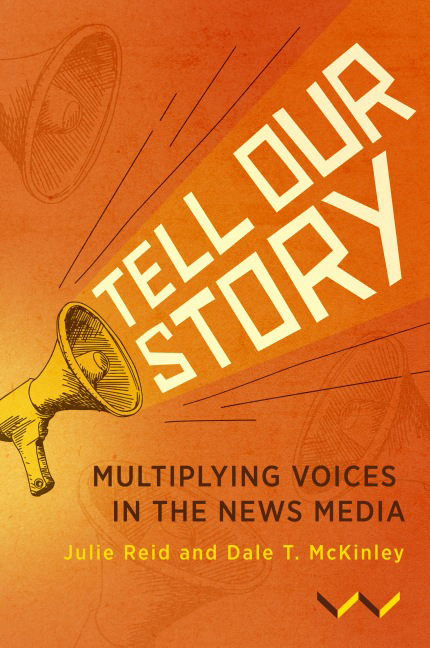Book contents
- Frontmatter
- Contents
- List of Figures
- Acknowledgements
- Abbreviations and Acronyms
- Chapter 1 The Importance of Voice and the Myth of the ‘Voiceless’
- PART 1 FROM THE INSIDE: VOICE(S) FROM THE GROUND
- Chapter 2 Community Perspective, Experience and Voice
- Chapter 3 Glebelands Hostel, Durban
- Chapter 4 Xolobeni, Eastern Cape
- Chapter 5 Thembelihle Community, Johannesburg
- PART 2 FROM THE OUTSIDE: DOMINANT VOICE
- Chapter 6 Dominant Media Telling and Elite Communication
- Chapter 7 The Political Economy of Dominant Power and Storytelling
- PART 3 NEW TRAJECTORIES FOR JOURNALISM AND VOICE(S)
- Chapter 8 Media Diversity and Voice(s)
- Chapter 9 Rethinking Media Freedom, Revamping Media Ethics
- Chapter 10 Planting the Seeds of Change
- Notes
- Bibliography
- Index
Chapter 4 - Xolobeni, Eastern Cape
Published online by Cambridge University Press: 10 September 2020
- Frontmatter
- Contents
- List of Figures
- Acknowledgements
- Abbreviations and Acronyms
- Chapter 1 The Importance of Voice and the Myth of the ‘Voiceless’
- PART 1 FROM THE INSIDE: VOICE(S) FROM THE GROUND
- Chapter 2 Community Perspective, Experience and Voice
- Chapter 3 Glebelands Hostel, Durban
- Chapter 4 Xolobeni, Eastern Cape
- Chapter 5 Thembelihle Community, Johannesburg
- PART 2 FROM THE OUTSIDE: DOMINANT VOICE
- Chapter 6 Dominant Media Telling and Elite Communication
- Chapter 7 The Political Economy of Dominant Power and Storytelling
- PART 3 NEW TRAJECTORIES FOR JOURNALISM AND VOICE(S)
- Chapter 8 Media Diversity and Voice(s)
- Chapter 9 Rethinking Media Freedom, Revamping Media Ethics
- Chapter 10 Planting the Seeds of Change
- Notes
- Bibliography
- Index
Summary
There are few places in South Africa, or for that matter globally, that are as beautifully wild and natural as Pondoland. It is the area in which the Amadiba Administrative Area is situated and within which Xolobeni is the largest village. Pondoland is the traditional territory of the Mpondo people, one of the isiXhosa-speaking peoples of South Africa, and it is situated on the south-eastern coast of the Indian Ocean in the Eastern Cape Province. It lies between the Mthatha and Mtamvuna rivers in the form of a coastal strip that is about 50 kilometres wide (SAHO 2013).
Pondoland has a long and complex political and social history. Depending on the historical source, the timeframe during which the Mpondo people settled in the area varies but suffice to say that by the sixteenth century they were well entrenched (Encyclopaedia Britannica 2017). After many wars, land conflicts and treaties signed with both the Dutch/Boers and then the British during the eighteenth to nineteenth centuries, like almost all black-owned and -settled land across South Africa, Pondoland was placed under the administration of white colonial authorities with the passage of the 1913 Natives Land Act. Under the Bantu Authorities Act of 1951, the area was incorporated into the new apartheid ‘homeland’ of Transkei, which was the first such Bantustan to be granted ‘self-government’ by the apartheid regime (SAHO 2011).
During the late 1950s and early 1960s, the population of the area rose up in what has become known as the Pondoland revolt (or Nonqulwana in isiXhosa) (see Mbeki 1964). The uprising, with many African National Congress (ANC) supporters at the forefront, was in direct response to the forced imposition of tribal authorities allied to the apartheid regime and also against the impending self-government for the Transkei Bantustan (TRC 1998). While the revolt was violently suppressed, the area of Pondoland remained largely undeveloped throughout the apartheid era and has remained so since the democratic breakthrough in 1994.
Besides its unique history of land ownership, where land continues to be communally owned under the overall stewardship of local traditional governance structures (inclusive of a royal family, chiefs, headmen and headwomen, and traditional councils), the region is a biodiversity hotspot called the Pondoland Centre of Plant Endemism. With close to 200 known endemic species, it is South Africa's second-richest botanical reserve (Olalde 2017).
- Type
- Chapter
- Information
- Tell Our StoryMultiplying Voices in the News Media, pp. 59 - 78Publisher: Wits University PressPrint publication year: 2020



